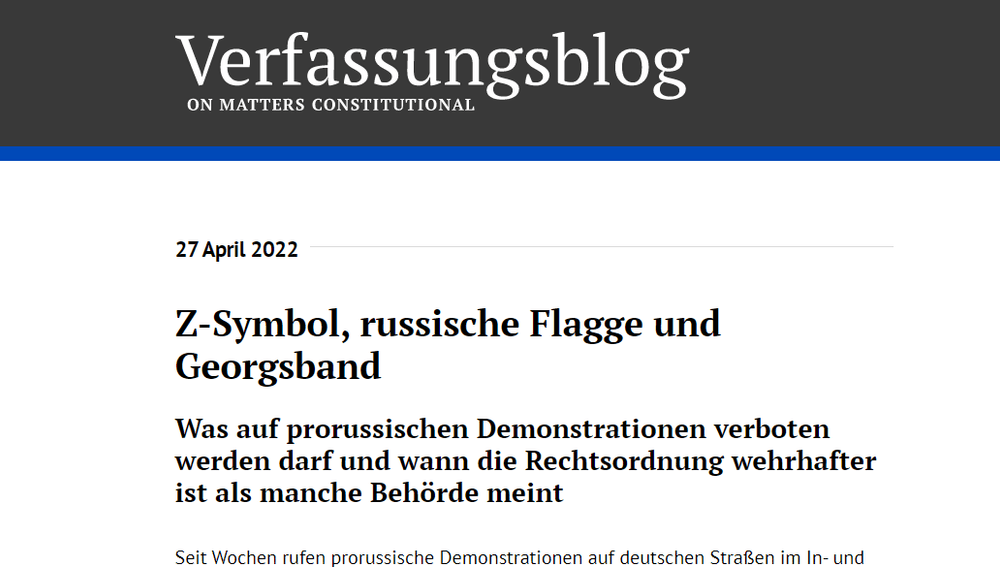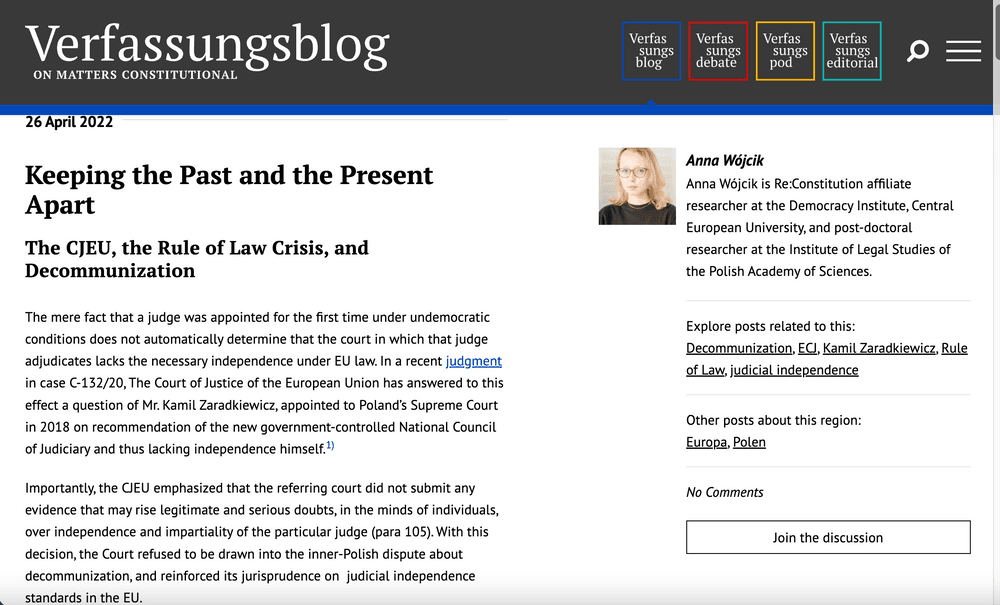
Dr. Paula Fischer publishes in Verfassungsblog on Germany’s legal grounds for prohibiting symbols supporting Russia’s war in Ukraine
Dr. Paula Fischer, a post-doctoral researcher in the MEMOCRACY team at the University of Cologne, has published a blog post at Verfassungsblog, discussing legal grounds for prohibiting public use of symbols demonstrating support for Putin’s Russia’s war in Ukraine. She situates her argument against a broader discussion on militant democracy provisions and freedom of expression.

